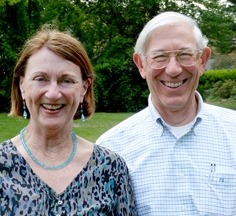Bay State Reading Institute
Purpose Prize Fellow 2012
Moscovitch and Gardner are blazing a new path toward effectively teaching low-income children how to read.
On a trip to Alabama in 2004, former Massachusetts state budget director Ed Moscovitch observed a revolutionary approach to help children from poor homes learn to read by providing their teachers with data, coaching and sustained support.
Soon after, Moscovitch sat down with Barbara Gardner, former associate commissioner of school readiness in the state’s Department of Education. They etched out a plan to do the same in Massachusetts. They launched the Bay State Reading Institute (BSRI) in eight schools in fall 2006.
Today the program is in 32. Here’s why: The gains in literacy by third-, fourth- and fifth-grade students at BSRI partner schools are three times higher than those made by students statewide.
At one school with a 74 percent poverty rate, every third-grade student scored at the proficient or advanced level in both reading and math – the only third-graders in the state to do so. And at BSRI schools, both behavior problems and referrals to special education are down by as much as 40 percent.
In 2010 the U.S. Department of Education awarded $5 million to BSRI to expand its programs through the federal Invest in Innovation program. Of 1,700 applicants, just 49 received such funding.
“Teachers and principals want to do the right thing but need help – not just use of data, not just principal leadership, but how to develop language skills, how to provide extra help to strugglers,” says Moscovitch, BSRI’s chairman. (Gardner is executive director.) “When all of this is put together, you get big, big changes.”




